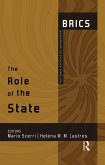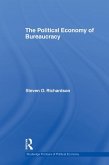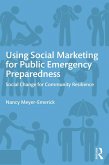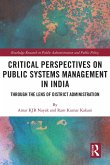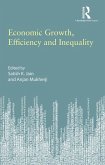Transformational Public Policy examines how governments can more effectively handle uncertainty and risk in an uncertain and changing world. This book illustrates how new methods derived from signal processing techniques can improve the practice of public policy by transforming it through rapid learning and adaptation. Interventions are processes of discovery, not compliance. It shows readers how the power of hypothesis testing in governance can be deployed. This approach can reduce the impact of negative unintended consequences -- a topic of great interest to policy makers and academics alike.
Dieser Download kann aus rechtlichen Gründen nur mit Rechnungsadresse in A, B, BG, CY, CZ, D, DK, EW, E, FIN, F, GR, HR, H, IRL, I, LT, L, LR, M, NL, PL, P, R, S, SLO, SK ausgeliefert werden.



